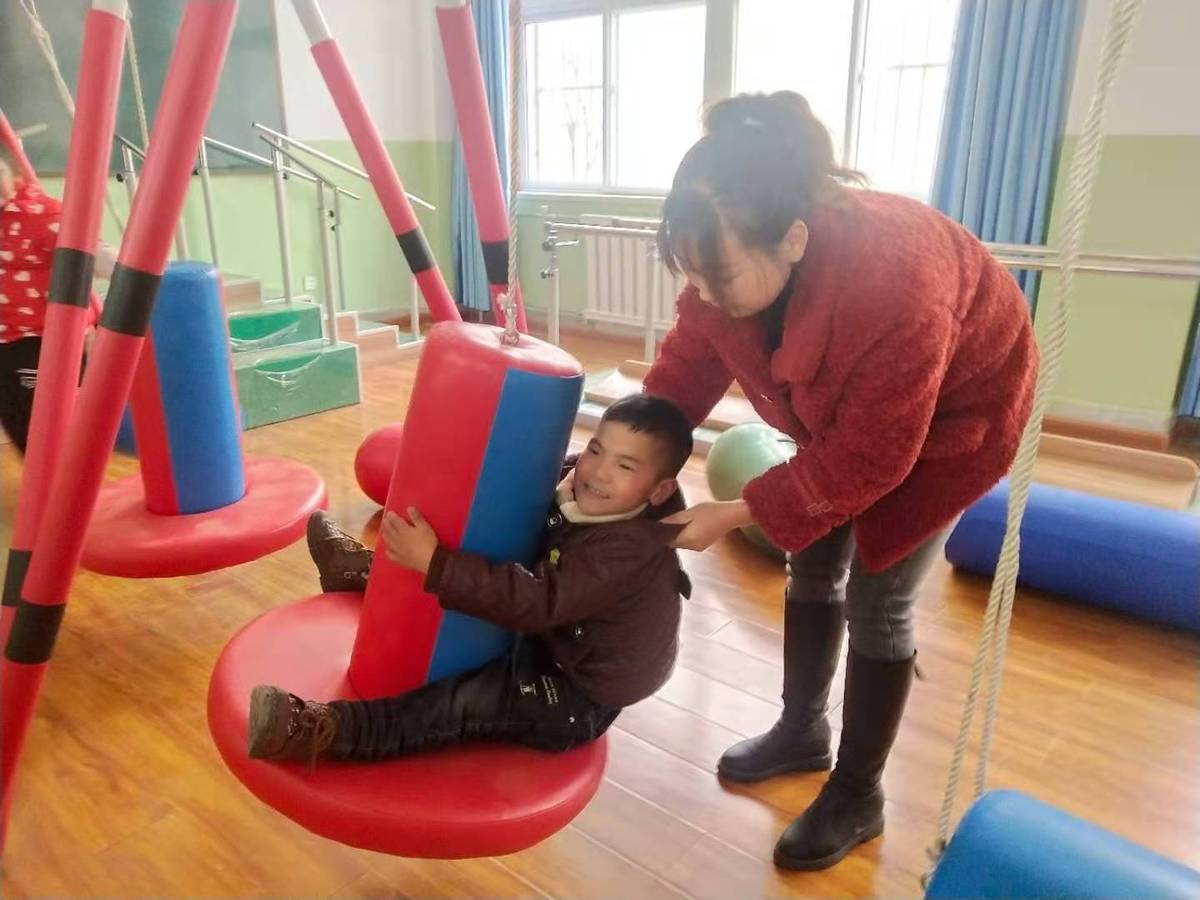Project aids disabled rural kids in accessing education


Not alone
Teachers involved in the program said the weekly home visits-which include literacy and numeracy classes and rehabilitation-have bolstered the children's cognitive abilities.
Liu Yufu, a deputy head of a middle school who teaches biology, said he joined the program three years ago.
The 11-year-old boy he is in charge of has cerebral palsy, which has caused severe speech and perception problems.
"At first, he couldn't utter words clearly and would run away every time his caretakers let down their guard," Liu said. "Thanks to the visits over the past three years, he is able to count from one to 10, and to call his grandma."
More importantly, the program offers poor rural families company and support. Young parents often toil away in far-off factories and on construction sites, leaving children in the care of aging grandparents or other relatives.
Xu Xiansheng, who teaches Chinese at a primary school in the county seat, said, "When farmers go in the field, they often lock the kids up at home to prevent them from getting lost in the mountains or caught up in conflicts with neighbors."
Last year, 31-year-old Xu joined the program and has been visiting two boys. One is 14 and has cerebral palsy, the other is 16 and has epilepsy. "Our home visits have offered them a short escape from loneliness," he said.
Eleven-year-old Liu Jiayi is one of 171 children with "severe disabilities "enrolled in the program. She suffered brain injuries in an accident seven years ago and is cared for by her grandmother in a rural part of Xinfeng.
Over the past five years, a pair of teachers have visited her every week. They also educate the grandmother about basic rehabilitation via the WeChat messaging app.
"The teachers visit every Wednesday, and the girl is really happy and energetic every time they come," the grandmother told China Central Television, the State broadcaster.
Xu said he and his colleagues, the "people's teachers", are ambassadors for the government and bring warmth to families, many of whom are isolated because of discrimination.
Initial success in Xinfeng, where rural residents make up almost 80 percent of inhabitants, has seen similar programs undertaken in the Inner Mongolia autonomous region and Hunan and Shaanxi provinces.
The poverty-alleviation program has also seen millions of disabled people receive education and rehabilitation or given equipment such as hearing aids and wheelchairs. State benefits now cover more people in rural areas, and hundreds of thousands of homes have been renovated with toilets, handrails and low stoves to improve accessibility for disabled people.
- Chongqing park becomes stage for captivating natural phenomenon
- Chongqing's cat theme park draws visitors, aids rescues
- Winter fishing season brings fresh catches at Hunan's Liuye Lake
- Former Guizhou official gets 11-year sentence for bribery
- Xizang expands elderly care faster than its population growth
- Ningxia offers near-total childbirth cost coverage to reduce burden on families





































